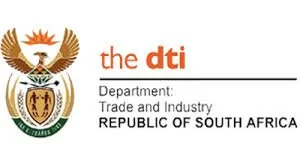 More than two million South African informal businesses are expected to benefit from a recently launched initiative by the Department of Trade and Industry (DTI) aimed at increasing access to support and training.
More than two million South African informal businesses are expected to benefit from a recently launched initiative by the Department of Trade and Industry (DTI) aimed at increasing access to support and training.
The National Informal Business Upliftment Strategy (Nibus) is the culmination of years of work by both government, the private sector and other interested parties into how better to assist and use informal businesses to strengthen the economy.
According to the DTI’s project manager of Nibus, Stephen Umlaw, the main focus of the strategy is not so much to formalise these businesses, but to provide them with much-needed assistance.
Services will be made available via local business chambers, associations and municipal structures, including Local Economic Development offices.
“No one will insist on business and tax registration as there might be people running businesses that do not generate much profit,” says Umlaw. However, at the same time there are entrepreneurs starting up informal businesses who have the skills and knowledge but need support.
“There are entrepreneurs who need funding and equipment and do not yet qualify for programmes that are aimed at the small business sector.
These business owners will be developed to a point where they have the option to register and thereby qualify for better opportunities,” says Umlaw.
Nibus is set to kick off with the Shared Economic Infrastructure Facility (SEIF) during the first quarter of 2014, followed by implementation of the Informal Business Upliftment Facility (IBUF).
The SEIF will cover funding for new, upgrades or maintenance of infrastructure that is shared by a number of informal businesses in the area. This funding will be a 50:50 cost-sharing grant presented with municipalities. The maximum grant amount is R2 million.
The targeted infrastructure includes old industrial zones and hubs in need of repairs.
Pilot projects under SEIF will be rolled out at sites in the Eastern Cape, Mpumalanga, Gauteng and the Western Cape.
The IBUF, which will prioritise women, youth and people with disabilities who own businesses based in townships, rural areas and the inner city, with skills development, promotional material, product improvement, technology support, equipment, and help with basic compliance such as registration for business and tax.
A pilot project the Informal Traders Upliftment Project (IBUF), that also forms part of Nibus, will be rolled out by the DTI, in partnership with the Wholesale and Retail Sector Education and Training Authority.
One of the aims is to initially train 1 000 traders in the retail sector over 18 months during the pilot phase.
The other aim is to further provide infrastructure upgrades to equipment that would benefit those in training.
Business owners will not have to leave their communities to access these services because information and forms can be collected from local municipalities.
In most instances businesses will be visited by specialist community field-workers.
According to Umlaw, all that is required is an identity document to apply for these services.
“However, our community field-workers will do on-site visits to ensure that the business is operational.”
Business chambers and associations will also be facilitating the project, and can even identify potential beneficiaries.
- For more information call the DTI on 0861 843 384 or go to www.thedit.gov.za

